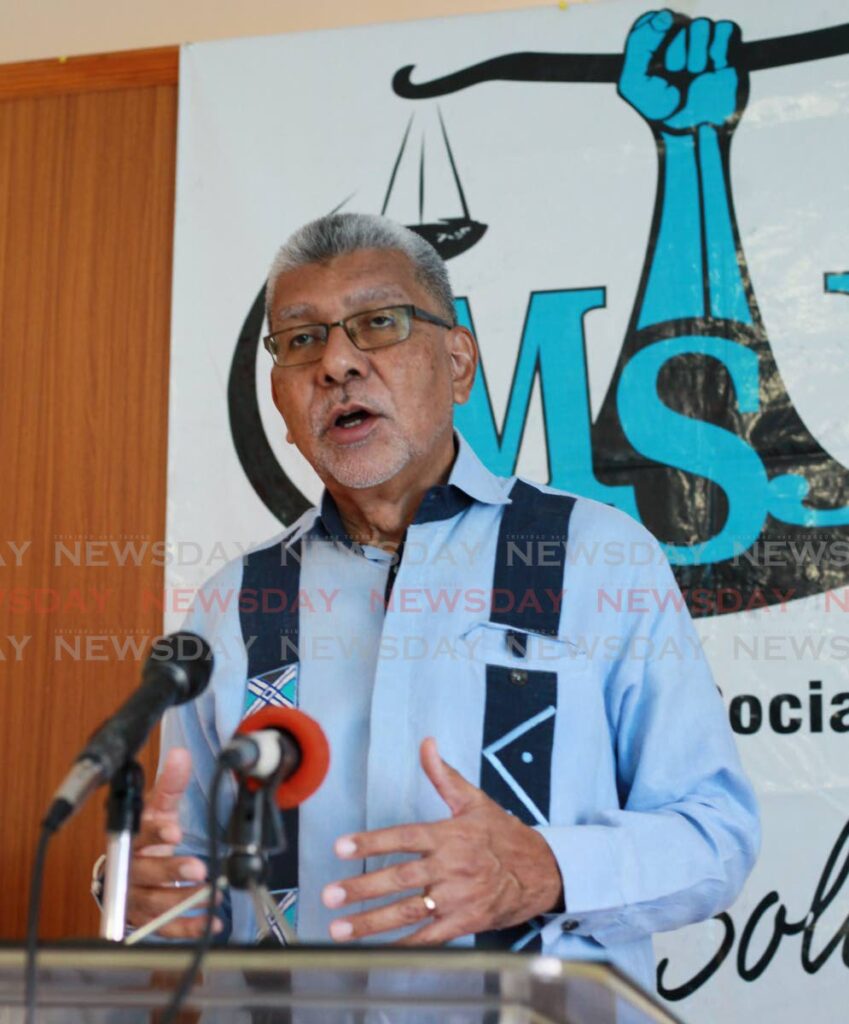MSJ: Guyana/Venezuela dispute needs dialogue, diplomacy

CONCERNED by “the increasingly noisy and belligerent positions being adopted by both Caracas and Georgetown,” the Movement for Social Justice is calling for both capitals to “take down their rhetoric.”
MSJ political leader David Abdulah said the way forward in the Guyana/Venezuela border dispute lies in dialogue and diplomacy, not war.
He said this decision, along with Caricom’s position that the region must remain a zone of peace, was articulated to two Venezuelan MPs who were in Trinidad and Tobago last week.
“So this suggests that in spite of all the rhetoric, there is hope for a peaceful resolution,” he said in a statement.
He said Caricom is best poised to initiate the dialogue, given the relationship Venezuela has with many of its leaders.
“For the first time in many decades our Caribbean region is experiencing major tensions – conflict even – between states. We have had crises before that have threatened or caused great instability, but these have taken place within a state."
In the circumstances, he said, “We say that there must be no foreign intervention or involvement – military or otherwise – in this conflict.
“Such involvement will only push us closer to the conflict escalating beyond words and announcements into deeds from which it will be hard to retreat. External forces of whatever stripe will only pursue their interests, which history has taught us is never in the interest of our peoples and region.”
Both the US and the UK have signalled their support for Guyana, after Venezuelans reportedly voted in a referendum to annex the Essequibo region.
Abdulah said the Venezuelan referendum was an internal decision in accordance with its constitution, and hence the International Court of Justice (ICJ) did not rule the referendum itself was a violation of international law, as Guyana claimed.
“However, at the same time, the outcome of what was a consultative referendum cannot be used by Venezuela as giving it any right to unilaterally take actions over Essequibo, which it now is doing.
“Unilateral action by a state against another state is wrong in international law, whether it is the US imposing unilateral sanctions or Venezuela issuing decrees.”
On the other hand, he observed, what has been happening in the days before, and since the referendum, “is the beating of the drums of war by both sides.
“Georgetown has announced that it is establishing defence arrangements with the US. The US Secretary of State has held discussions with Georgetown. The US Southern Command is involved.
"This is definitely not helpful and will be seen by Caracas as a threat and facilitating US military incursion into Venezuela.”
Caracas has also announced the appointment of an general as governor of Essequibo, and has stated its intention to invite Venezuelan companies to bid for licences for mineral exploration and production.
“This is not good and is seen by Georgetown as a threat of invasion.”
Alluding to the borders arbitrarily drawn by colonial powers in their interest, without any consideration of the culture and the causes of crises and wars globally, Abdulah said any decision to alter these decision would be extremely problematic.
For this reason, he suggested, “Disputes can be best settled by dialogue and discussions. In a war there may be victor militarily, but the loser will not accept the outcome which was imposed on it.
“While the issue of the substance of the dispute is before the ICJ, it is often better – as many trade unions would know – for a matter to be settled bilaterally between the parties in dispute, rather than having a court impose a judgment.
“The present situation with the ICJ has been made more difficult because Venezuela does not recognise the ICJ’s jurisdiction to determine the dispute while Guyana and Caricom definitely do."

Comments
"MSJ: Guyana/Venezuela dispute needs dialogue, diplomacy"